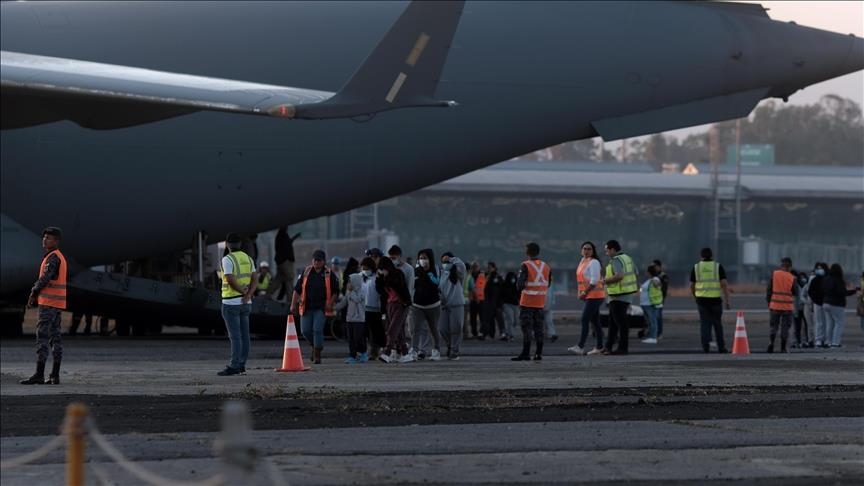Federal judge blocks Trump administration from deporting Asian migrants to Libya
War-torn country is 'notorious for its human rights violations,' say lawyers for detained migrants
 File Photo
File Photo
HOUSTON, United States
A federal judge issued a temporary restraining order Wednesday blocking the Trump administration from deporting Asian migrants to Libya, according to media reports.
The ruling came in the wake of an emergency motion from lawyers representing migrants from Laos, the Philippines and Vietnam who said they were in "imminent" danger of being deported to war-torn Libya, "a county notorious for its human rights violations."
Some of the detained migrants were reportedly told they would also be sent to Saudi Arabia, another county often criticized for its human rights abuses.
US District Judge Brian Murphy said deporting the migrants to a country where they are not citizens would violate his previous order that migrants being sent to a country other than their own first be given a "meaningful" opportunity to challenge their removal in court and show that they may face persecution.
"The Department of Homeland Security may not evade this injunction by ceding control over non-citizens or the enforcement of its immigration responsibilities to any other agency, including but not limited to the Department of Defense," Murphy said in his ruling.
"The allegedly imminent removals, as reported by news agencies...would clearly violate this Court’s Order," he added.
The latest move to deport Asian migrants comes after the Trump administration's push to carry out mass deportations, including efforts to send undocumented migrants to countries where they are not citizens. The so-called third country removals began when the Department of Justice (DOJ) conducted a migrant sweep in March that sent nearly 150 alleged Venezuelan Tren de Aragua gang members to a maximum security prison in El Salvador.
President Donald Trump pledged to deport millions of undocumented migrants during his 2024 presidential campaign and in March invoked a little-used wartime law called the Alien Enemies Act (AEA) to deport the alleged Venezuelan gang members to the Salvadoran prison.
Federal judges have since blocked further deportations under the AEA, which was last used to round up nearly 120,000 Japanese-American citizens during World War II and send them to internment camps.
Libya’s Tripoli-based Government of National Unity (GNU) denied reports that it had reached a deal with the Trump administration to take in the expelled migrants.
"Parallel entities, not subject to legitimacy, could be involved in agreements that do not represent the Libyan state and do not commit it legally or politically," the GNU said in a statement.
Libya is split between the United Nations-recognized GNU in the west and a rival administration led by Khalifa Haftar that rules from Benghazi and Tobruk in the east.
The eastern government’s foreign ministry also issued a statement "denying the existence of any agreement or understanding concerning the settlement of migrants of any nationality."








